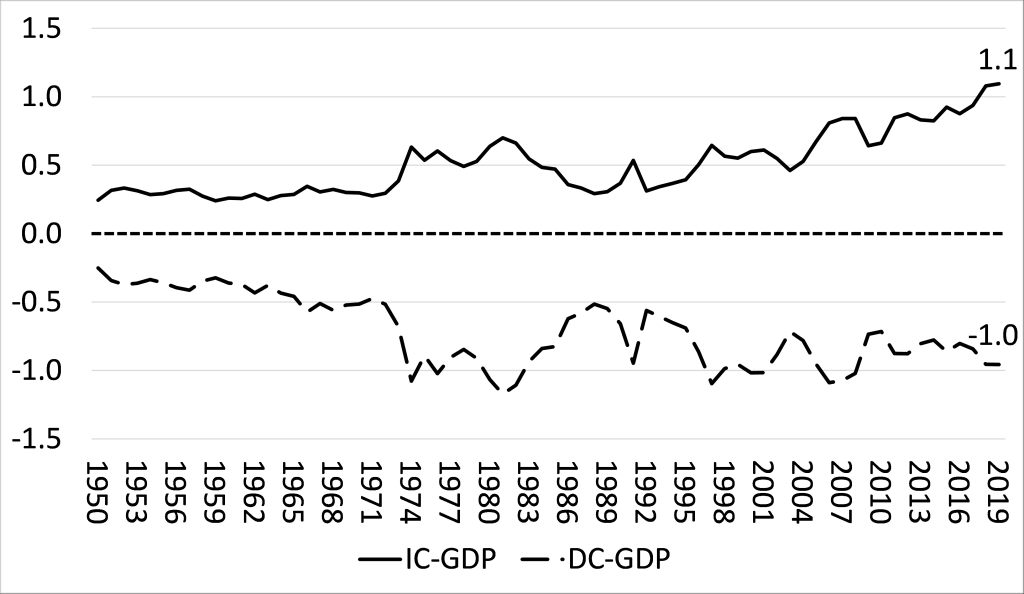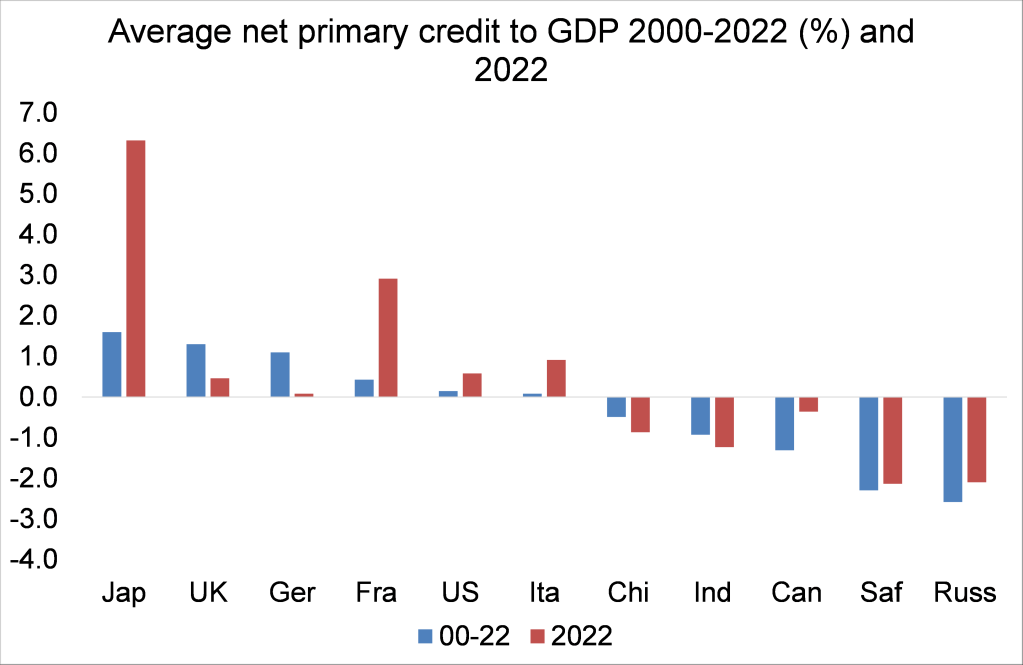Getting rid of planned/forced obsolescence would fix a large bulk of overconsumption without negatively impacting QoL.
There is a great movie with Alec Guinness called The Man in the White Suit. He creates a fabric that can't be torn, can't get dirty, cannot degrade. Everybody ends up hating him lol!
The existence of a USSA would be a totally warping thing. The fall of the imperial core would probably have a tidal wave effect.
As someone who lives a very comfortable life in the imperial core I was thinking about this - what would my life look if forced to reduce consumption/increase production by 50%?
I think you could drastically reduce consumption by merely re-ordering american life in certain ways - i.e replacing car dependent city planning with public transit centered alternatives (this alone removes the necessity of car ownership for most people, or reduces the 2-3 cars/family thing you see in the suburbs). fostering/creating "community", so that our "free time" isn't colonized by increasing commercialization where we must consume in every waking moment (think watching netflix, scrolling tiktok, online shopping, etc, Very much Critique of everyday life a la Lefebre). Reordering production such that "unproductive" sectors like marketing or finance (my own career lol) are filtered into productive ones, etc.
I think a combination of these things could easily result in a reduction of 25-30%. What's crazy about these statistics is that equality would require an additional reduction of 20-25%. I imagine accomplishing the first part would put US consumption at the level of a less-consuming EU state, but even those states consume at rates higher than the global south. It's wild to think about
When seeing things like this I always wonder how much of western overconsumption actually takes the form of goods and services consumed by average people. A lot of it must also be connected to corporate or government consumption that does not improve the lives of normal people, like military expenditure or marketing, most of which could be done away with without causing a fall in experienced standard of living.
And going further, how is this overconsumption distributed internally in the imperial core? I suspect that a tiny demographic is responsible for most of it.
Bottom line, for most westerners, a 50% reduction in consumption, if planned rationally, would probably mean a significantly smaller reduction in their personal consumption. And then there's all the added social and environmental benefits of reining in inequality, consumerism and car culture.
The big takeaway for me is that despite the typical depiction, it’s medium skilled labor that makes up the bulk of the value created by the global south that the global north enjoys, not low skilled labor.
I think those would be the people working in factories who are working building products for export. Domestic goods would be less profitable, meaning lower wages for the workers, but the wealth continues to circulate inside the country. A lot of capital gets tied up in endeavors that are creating surplus value for foreign owners.
Every time I see this guy's name I read it as Jackson Hinkle and am surprised he's having an actually good take.
One of them should change their names, it's poor (or good) branding
And yet Neoliberals still parrot the idea that the Global South actively participates in unequal exchange of their own volition, ergo it's justified.
Plundering.
I don't think this is a stick in the spokes for them, considering how popular chauvinistic geopolotical approaches á la "that country is fucked because all its inhabitants are too dumb to make a liberal democracy work and fight corruption"
You get your liberals that are fully fans of the system but even among those who aren't and do despise their own government(s), which is a lot more, they usually seem to think it's them - the individual - holding up civilized society as some sort of Atlas figure, along with a few (houndred) thousand of the other good ones or so. Sort of like a very micro version of great man theory
How much of that labour is consumed exclusively by millionaires and billionaires in the North?
Then it's being consumed in the form of held stocks. This doesn't disprove me.
Buying a hamburger, you are buying all the labor used to produce the feed for the cow, all the labor used to abuse the cow, all the labor used to kill the cow, all the labor used to ship the carcass, all the labor to process the carcass, all the labor to cook the carcass on-demand and serve it to you.
Buying a stock or any other form of fictitious capital, the only thing being 'consumed' is whatever fractional share of the computer chip being transacted on that is expended or depreciated during the transaction.
While both cost money, only the former expends labor-time. The point @shipwreck@hexbear.net is making is that most ultra-wealthy people's consumption is in this second non-labor-consuming category. Although I wonder if that is really an accurate assessment.
That stock is bought with money which is the congealing of past labour from first world workers. First world workers are working harder to create unused stores of value as well as used value in the form of excess consumption.
No labor ever was embedded into the stock, and it's freely exchanged without ever being consumed. It's not an unused store of value because it exists in parallel to the capital it represents (which is amplified by speculation), but independent, which means the actual capital is then expended and generates profit separately. The value is still being generated and consumed in the commodity, the share just allows for capitalists to finance the production of said commodities in a more convenient way, and the price of share tracks the overall growth of the economy on average so no additional value is ever being created.
The stocks need a fractional reserve of commodities or labor to operate. When you have a stock whose price has become decoupled from labor input, we call that a bubble.
There is something to it though. I can't remember where I saw this but in some western country they made an assessment of carbon emissions distributed on income quintiles (I think). The highest quintile emitted something like twice of what the lowest did. It makes sense, they have multiple cars instead of riding bicycles, they live in big houses instead of small apartments, if something breaks they throw it out instead of trying to repair it.
So while the ultra-rich might be too few for their overconsumption to have an impact (besides the moral one which one should also consider), cutting the luxury spending of the well-off and above is a low-hanging fruit that could get us part of the way without causing anyone any hardship.
i thought it was much more extreme than that, with the upper quintile being responsible for something like 50% of all emissions
and then you have to figure how much labor goes into supporting those lifestyles, directly and indirectly. restructuring the economy to not be in service of billionaires would do quite a lot to reduce western "consumption" habits probably while improving most people's actual quality of life, i think.
interesting when every rich person has like 20 personal sycophants, a yacht (100 meter monstrosity feeding like 100 workers during 2-3 years of production), private jet etc. And luxury items are exactly in high labor hours, thats what makes them luxury - you pay global north wages for handcrafted shit, designed appliances, one of a kind systems of all kinds. Its a large industry even if us, being poor, dont interact with it. That's ignoring lawyers on retainers, consultants of all kinds, pr managers.
In other words bill gates probably makes 10000 people do his bidding on his dime, producing something of relative limited value outside of bill gates.
AFAIK the advanced consumption habits of the rich come mainly from energy consumption. Like they have (multiple) giant homes so they have to heat and cool them. They fly their families all around the world whenever all the time. They have big fancy cars that use a lot of gas and drive them as much as they want.
But as for, like, commodities, they don't necessarily consume significantly more. Like they buy pants more often and the ones they buy are more expensive, but consumption of pants doesn't grow geometrically with wealth. Like they do consume more goods but they're roughly on the same order of magnitude as other people.
But I'm not an expert I'm dumb so take this with a grain of salt.
Yet received wisdom in the west is that it goes the other way round. Talk to the average westerner about global inequality and you almost always get some version of "We give them so much aid but the non-white brainpan is simply too predisposed towards sloth and corruption for it to work"
Meanwhile we westerners have ridiculously high thoughts of ourselves. Imperialism? Never heard of her, the reason we're rich is simply our superior Judeo-Christian protestant work ethic and our civilised values of free market liberal democracy. Sometimes this autofellation can take absurd forms, just this day I saw a serious news outlet claim that the fact that clothing shops have racks of clothes on the sidewalk outside the shop is somehow the result of an uniquely enviable level of trust and morality.
The average westerner lives in a completely alternate reality. They are no better than medieval peasants who believed that India/Abyssinia/Atlantis was populated by giants, headless people and mermaids.
To my knowledge there are no western bourgeois economists that are asking these kinds of questions and doing this kind of research. That right there is incredibly telling. You could probably develop an entire sub-field of economics around researching the unequal exchange between global north and global south, and yet no one is drilling into it. I wonder why…
This is some of the most important research Marxian economists can do right now. We all know the very first objection that westerners have to socialism: that it “doesn’t work”, and the fact that western capitalist countries were so much wealthier than AES states like the USSR, DPRK, and Cuba is proof of that. In additional to various historical advantages (colonialism) and improper comparison (why aren’t we comparing Haiti and Cuba instead of the US and Cuba?), so much of why capitalism “works” in the US is exploitation of labor in the global south.
And what this says is… to make a fair comparison, you have to massively increase the cost of most goods that you buy without a corresponding increase in wages. Change that and the living standards for most Americans would fall off a cliff. It’s obvious that the standard of living that most Americans enjoy that they credit to the “miracle of capitalism” is really just from the exploitation of labor in the global south. And on top of that, the American quality of life is also juiced by unsustainable environmental degradation (if everyone consumed like Americans, we would need five earth’s worth of resources to keep up).
Eliminate exploitation of the global south and unsustainable environmental degradation, and American workers would have living conditions similar to what Engels describes in The Condition of the Working Class in England in 1844.
improper comparison (why aren’t we comparing Haiti and Cuba instead of the US and Cuba?)
this has buggered me so much since the first time i ever heard that comparison
it's especially bad when it's someone from the 3rd world spouting that bullshit. "people are leaving cuba to go to the US!!" yea bitch but more people are leaving our country for america too and ours is a fucking capitalist one
Along a similar vein, I see so many libs resorting to saying "Americans are so much better off than 90% of the world's population! Be grateful for what you have!" But why would America want to compare itself to Sudan, Myanmar, or Mozambique? They would rather plunder the global South than change anything about how America functions at a fundamental level
What would a US that isn't exploiting the global South look like for most?
mean wage in usa is like 60k i believe, so 30 k +-. (thats before looking a quintiles) perfectly survivable tbh
Right now 30k per year in the US is hardly survivable outside of rural areas. Rent can cost 30k a year in big cities and 30k a year is a minimum wage job.
sans rent, as we are talking about products and commodities. And yeah, it would require
 but outside of that its survivable wage, non? even with medical and utilities prices being slightly bonkers
but outside of that its survivable wage, non? even with medical and utilities prices being slightly bonkers
A big difference would also be that all the labor that goes into managing empire would also be able to be put to production for society instead of production for monopoly capitalists. It would ultimately depend on what type of system the US runs under in a hypothetical world where it is moved to semi periphery
This whole thread is why this is one of the best sites on the internet right now
i think the idea here is that we're watching a wwe wrestling match with all of its theatrics and kayfabe, and jason hickel has snuck up behind the concept of capitalist foreign investment improving material conditions in the global south, and he's holding a chair made of receipts in the form of these charts, and i guess he's going to hit the concept of capitalist foreign investment improving material conditions in the global south with the chair
For those that are interested MR also did a post about this too recently. Further thoughts on the economics of imperialism
There are also a few interesting charts and obvious correlations for example
We found that since the end of WW2, the imperialist bloc (IC) annually got around 1% of their GDP through the transfer of surplus value in international trade from the rest of the major ‘developing’ economies (DC) in the G20; while the latter lost about 1% of their GDP in surplus value transferred to the imperialist bloc. And these ratios were rising.
Show
What I also found was that after accounting for the debits ie income flowing out, the NET position was even starker. The annual net flow of income to the G7 economies was around 0.5% of G7 GDP. Indeed, the top five imperialist economies (G5) obtained a staggering 1.7% of their annual GDP from such net inflows. In contrast, the BRICS economies lost 1.2% of their GDP a year in net outflows.
If you look at the net income flows for each G7 and BRICS countries, the biggest gainers over the last two decades have been Japan with its huge foreign asset holdings and the UK, the rentier centre of financial circuitry. Those BRICS countries that have lost the most (as a share of their GDPs) have been South Africa and Russia.
Show
What's the relationship between unequal exchange theory and Marxist economics? I've seen at least one attempt to theorize unequal exchange as a category directly in Marx's analysis in Capital. But then there's Paul Cockshott who argues unequal exchange theory is un-Marxist because it regresses to a pre-Marxist, moralist notion of exploitation, over the scientific categories explored by Marx and Engels. In Cockshott's opinion, exploitation occurs even when equivalents are exchanged, and therefore there is no need for an unequal exchange theory.
I lean towards the unequal exchange view and see Cockshott's argument being myopic. Just because surplus value is extracted even with the exchange of equivalents, doesn't mean unequal exchange doesn't also persist as a discrete phenomenon. Assuming equivalents are actually exchanged feels very Capital vol. 1 -brained.
But I'm curious if anyone who knows this subject better could help me work through it.
exploitation on supranational scale?
take planet as a whole (a thoroughly marxist notion) producing basket of commodities, you have workers doing socially necessary labor, and receiving equivalent of like 1 hour out of 8 hours worked (of average labor time on the planet). Seems obvious to go to superexploitation thesis. Unequal exchange is not marxist-like, but highlights this dynamic.
Hickel does marxist work, and uses the unequal exchange terms, but i feel like contradiction is surface level at best. Unequality is most obvious when say a bangladeshi worker would try to trade t-shirt she made to union made usa t-shirt. Its exact same t-shirt, one costs 3 dollars, the other 40. And textiles are notoriously badly mechanizable. But if we take planet scale t-shirts we average out that difference, and instead get that bangladeshi worker receives like 1/10th of value and american worker like 7/10 of his value, thus she is superexploited.
I found a YouTube link in your comment. Here are links to the same video on alternative frontends that protect your privacy:
This is an underestimate. It includes China (which I'd argue isn't being exploited), Israel, Iceland and Monaco as global North.

















